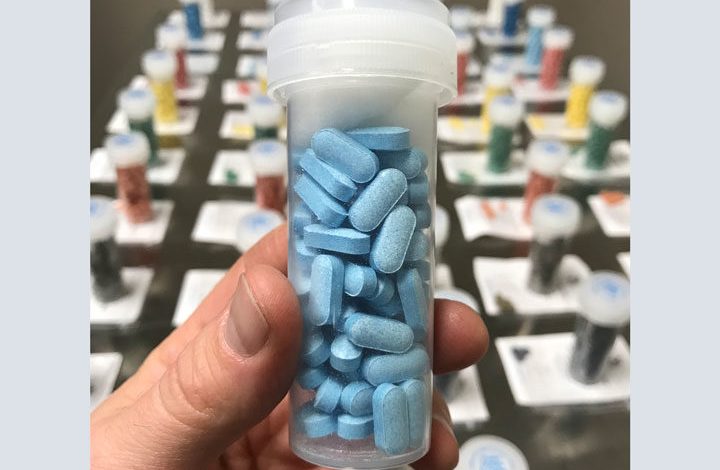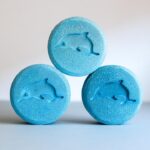Are There Any Pills To Treat Blue Waffles Disease?

No, “Blue waffles disease” is not a recognized medical condition, and there is no such thing as a “blue waffles disease pill.” In fact, “blue waffles” is a term used on the internet to describe a fictional sexually transmitted infection (STI) that does not exist in reality.
It is important to note that relying on misinformation and unverified claims about health conditions can be dangerous and lead to incorrect treatment or self-diagnosis.
The term “blue waffles” is a made-up term that does not refer to any known medical condition, and any images that may appear online claiming to be “blue waffles disease” are likely to be fake or digitally manipulated.
It is important to note that many sexually transmitted infections (STIs) and other vaginal infections can cause symptoms such as itching, burning, redness, and discharge. If you are experiencing any concerning symptoms, it is important to see a healthcare professional for proper diagnosis and treatment.
The treatment for STIs and vaginal infections will depend on the specific cause of the infection. For example, bacterial vaginosis may be treated with antibiotics, while yeast infections can be treated with antifungal medication. The best course of treatment will be determined by your healthcare professional after a proper diagnosis.
It is important to practice safe sex and good hygiene habits to reduce your risk of contracting STIs and other infections. This includes using barrier methods during sex, such as condoms, and practicing good hygiene habits, such as washing your hands regularly and avoiding sharing personal items.
If you are experiencing any concerning symptoms, it is recommended that you seek medical advice from a qualified healthcare professional.
What are the pills for sexually transmitted infection (STI)?
There are various pills that can be used to treat sexually transmitted infections (STIs), and the specific medication prescribed will depend on the type of infection being treated. Some commonly prescribed medications for STIs include:
1. Antibiotics: These are used to treat bacterial STIs such as chlamydia, gonorrhea, and syphilis. Antibiotics work by killing the bacteria that cause the infection. The most commonly prescribed antibiotics for bacterial STIs include:
• Doxycycline: This is a type of tetracycline antibiotic that is often used to treat chlamydia and other bacterial infections. It is usually taken twice a day for a course of 7-10 days.
• Azithromycin: This is a type of macrolide antibiotic that is often used to treat chlamydia and gonorrhea. It is usually taken as a single dose.
• Ceftriaxone: This is a type of cephalosporin antibiotic that is often used to treat gonorrhea. It is usually given as an injection.
• Penicillin: This is a type of antibiotic that is used to treat syphilis. It is usually given as an injection.
2. Antiviral medication: These are used to treat viral STIs such as herpes, HIV, and hepatitis B and C. Antiviral medications work by slowing down the replication of the virus, which can help to reduce symptoms and prevent the virus from spreading. The most commonly prescribed antiviral medications for STIs include:
• Acyclovir: This is a type of antiviral medication that is used to treat herpes simplex virus (HSV) infections. It can be taken orally or applied topically.
• Valacyclovir: This is a prodrug of acyclovir that is often used to treat genital herpes. It is usually taken orally.
• Tenofovir: This is an antiviral medication that is used to treat HIV. It is usually taken as a daily pill.
• Entecavir: This is an antiviral medication that is used to treat chronic hepatitis B. It is usually taken as a daily pill.
3. Antifungal medication: These are used to treat fungal STIs such as yeast infections and some types of vaginal infections. Antifungal medications work by killing the fungus that causes the infection. The most commonly prescribed antifungal medications for STIs include:
• Fluconazole: This is a type of azole antifungal medication that is used to treat yeast infections. It is usually taken orally.
• Clotrimazole: This is an antifungal medication that is used to treat yeast infections and some types of vaginal infections. It is usually applied topically.
It is important to note that taking medication for STIs should always be done under the guidance of a healthcare professional. Self-diagnosing and self-medicating can be dangerous and lead to incorrect treatment or drug resistance. It is important to seek medical advice if you suspect you have an STI or have been exposed to an STI.
Prevention of STD
There are several ways to prevent the spread of sexually transmitted diseases (STDs):
1. Abstinence: The most effective way to prevent STDs is to not have any sexual activity, including oral, anal, and vaginal sex.
2. Use condoms: If you are sexually active, using a condom correctly and consistently can significantly reduce your risk of getting or transmitting an STD. Condoms should be used during every sexual encounter, from start to finish.
3. Get tested: It’s important to get tested for STDs regularly, especially if you have multiple sexual partners or engage in unprotected sex. Testing can help identify STDs early and allow for prompt treatment.
4. Limit sexual partners: The more sexual partners you have, the higher your risk of contracting an STD. Limiting your sexual partners and practicing monogamy can help reduce your risk.
5. Communicate with your partner: Talk openly and honestly with your partner about your sexual history and any STDs you may have. This can help you make informed decisions about safer sex practices.
6. Vaccines: Vaccines are available to prevent certain STDs, such as HPV and hepatitis B. Talk to your healthcare provider to see if you are eligible for these vaccines.
It’s important to remember that many STDs have no symptoms, so getting tested regularly is crucial for early detection and treatment. If you suspect you have an STD or have been exposed to one, seek medical advice from a healthcare professional.





